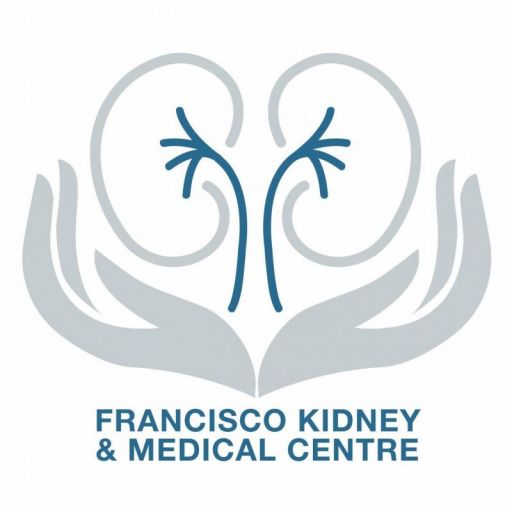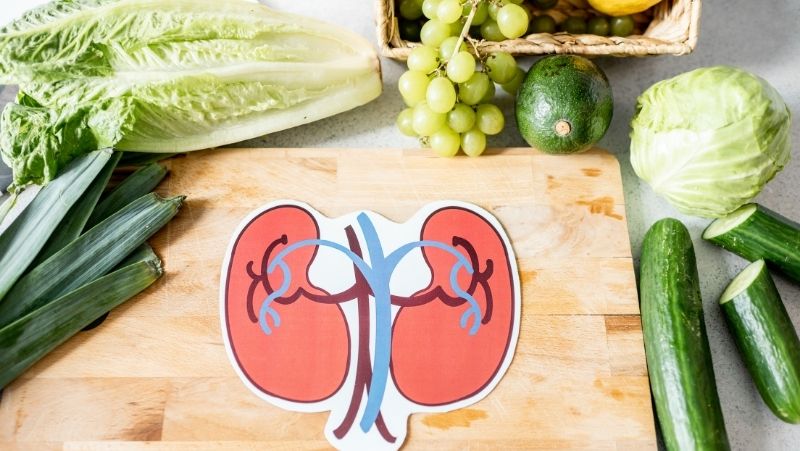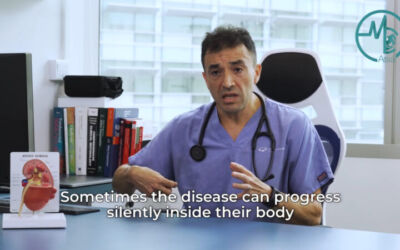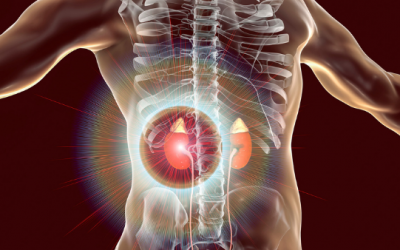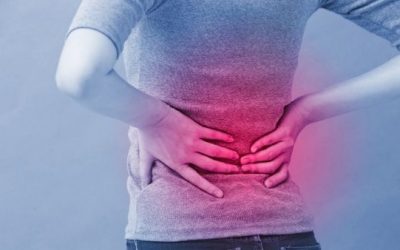Table of Contents
Why is diet control so important for kidney disease?
A healthy diet and a more active lifestyle is crucial for everyone, having kidney disease or not. Diet control (with many unfortunate but necessary restrictions) is of pivotal importance for patients with moderate or advanced kidney dysfunction to maintain their health, minimise disease progression, and prevent medical complications.
Equally important is following a healthy and active lifestyle, and getting rid of any bad habits like smoking and binging on alcohol.
Because it is very important for kidney patients to live a more disciplined life, control their diet, do their best to follow their diet restrictions, and stay active (physically and intellectually). Naturally, those who are more disciplined tend to live better and longer lives than patients who are not willing to make changes or not able to sustain the healthy habits and lifestyle.
Now let’s talk about our diet, and why it is so important.
Through the food we eat, we nourish our body, but when there is excess, unbalanced and/or deficient in certain components, our health can be compromised.
Also, through our usual diets, we consume excess of many components and occasional toxins; and the major organs in our body such as the liver and the kidney help us to eliminate that excess of those components or to detoxify our system.
In patients with chronic kidney disease, many of these processes are deranged, and the remaining kidney function is unable to perform those detoxifying and regulating roles optimally.
As a consequence, many of the substances derived from our diet that normally are kept in control like potassium and phosphate can go high in the blood and reach toxic or even dangerous levels.
Thus, patients with kidney disease need to control food with high content on phosphate, to protect their bones and their cardiovascular system; or food high in potassium, as its excess can cause erratic rhythms of the heart or simply put it to stillness, which is totally undesirable.
Likewise, it is ideal for patients with kidney disease to control food with high sodium content to avoid fluid retention, to better control their blood pressure and to protect their heart and their cardiovascular system.
And the vital fluid needs to be controlled in patients with more advanced kidney disease or total kidney failure to avoid fluid retention, high blood pressure or spikes of blood pressure, and to prevent acute or chronic heart failure and occasionally flooding the lungs; all of which are very dangerous.
Knowing, and more importantly, contrasting, both the consequences of not controlling their diet and the benefits of putting in effort is sufficient for many patients to adapt to and to embrace more graciously all the diet restrictions that we doctors recommend.
We can imagine how difficult that can be, but unfortunately it is necessary and crucial for a better health and a longer and fuller life, despite having kidney disease.
However, it is not as simple as eating ‘less of this and that’ or ‘eat less sodium or less potassium or less phosphate’… because no one eats sodium, potassium or phosphate. We eat complex foods with a myriad of ingredients, including various useful nutrients for our health, even when having kidney disease.
So, the other side of the coin of dietary restrictions is the risk of malnutrition and nutritional deficiencies. Firstly, because kidney disease is considered a catabolic disease (making the body to consume resources faster or not to utilise them properly); and secondly, because kidney disease is associated with malnutrition and many nutritional deficiencies.
Therefore, there must be a balance when advising patients about diet restrictions; and the truth is, this balance is not easy to achieve.
However, if the patients are advised to follow a more balanced, varied and moderate diet (and they are given the right strategy to do it) without going overboard – this balance I am referring to will be easier to achieve. And the key components to achieve this balance are self-control and living a more moderate and active lifestyle.
What are malnutrition and protein wastage in chronic kidney disease?
Patients with chronic kidney disease can suffer from malnutrition, especially when the disease progresses to more advanced stages or total kidney failure.
Malnutrition is multi-factorial. The high levels of toxins in the blood, accompanying advanced kidney disease can negatively affect many bodily metabolic processes and overuse and burn out nutritious elements, what we call catabolism. In short, nutritious elements are spent but not replenished back appropriately.
In addition, the high levels of toxins can make patients develop uraemic syndrome, causing nausea, vomiting or diminished appetite… thus worsening malnutrition.
As mentioned before, patients with kidney disease, especially those in the advanced stages, are recommended dietary restrictions, and when those restrictions are either too restrictive or not tailored adequately to the metabolic needs and palate of patients, things can get worse.
In addition, the level of malnutrition can be even worse in patients with other debilitating conditions, such as cancer, heart failure, liver failure, and diabetes mellitus, and in patients suffering from chronic inflammation like glomerulonephritis and rheumatological diseases like lupus.
Patients with nephrotic syndrome, who are losing large amounts of proteins in the urine are also prone to malnutrition. And also those patients who are acutely ill due to concurrent infections or emergencies, who then have higher nutritional demands because they are in a hyper-catabolic state (overusing nutrients) and they are more prone to get malnourished.
How to prevent protein wastage and malnutrition of chronic kidney disease?
The best way to prevent protein wastage and malnutrition of chronic kidney disease is following a balanced, varied and healthy diet (with some moderations obviously), which is according to the metabolic needs of the patient, physical activity, the stage chronic kidney disease and the restrictions that need to be implemented to correct ongoing or future metabolic problems.
A healthy, varied, moderate and balanced diet, not greatly different from healthy people, is typically recommended to patients with chronic kidney disease in early and intermediate stages (stage 1 to 3a).
Ideally, patients should avoid high sugary foods and sugary drinks, fatty, oily and fried foods, salty dishes, and processed foods. And actually healthy people should also avoid the same.
For patients at more advanced stages (stages 3b to 5) or with total kidney failure, more dietary restrictions are recommended. Sodium and salt intake should be moderated around 2 g of sodium per day or 5 g of salt per day.
The potassium, the phosphorus, the calcium (both the ones coming from the diet and the ones prescribed as supplements or medications), as well as dietary protein are restricted in many patients.
The type and extent of the restrictions need to be individualised to the patient’s general nutritional condition, the stage of the chronic kidney disease (usually restrictions are recommended from stage 3b, but some patients need to start from stage 3a), patients’ symptoms, accompanying diseases and laboratory parameters.
Typically, a restriction of 0.8 g of protein per kg of body weight per day is recommended in stages 3a/3b and 4 of chronic kidney disease. The aim of restricting protein is to slow down the progression of kidney disease, to diminish the amount of protein-derived toxins in the blood (and the symptoms derived from them) and to reduce the load of phosphorus contained in proteins and the consequence of its excess; thus protecting the bones and the heart.
Occasionally, doctors will prescribe a higher degree of protein restriction. If this is necessary, supplementation with special amino acids (keto acids) is recommended. However, taking keto acids when the protein restriction is not high (very restrictive) does not add any significant benefit to the patient, and adds to unnecessary costs.
They are a compensatory replacement because of a more drastic protein restriction; and without restricting protein, they do not have beneficial roles, i.e. taking normal amounts of protein and on top taking these supplements.
It is important to mention that very restrictive diets, too low on protein or in phosphorus, contributes also to malnutrition, in addition to the negative effect on nutrition that progressive kidney disease has. So it is important to strike a balance, but it is difficult in many circumstances.
Following the advice of a clinical dietitian with expertise and experience treating renal conditions can help you strike a better balance for obtaining the best possible nourishment and for avoiding malnutrition.
Sometimes patients must be prescribed oral supplements and shakes to boost nutrition, but a proper assessment by a dietitian taking into account all the patient factors described above is pivotal to move the patient’s health to the next level.
As I also comment it, diet is crucial for patients with renal disease. For everyone in fact, but more for them. But because diet is something some believe as common, simple and mundane, many patients give it secondary importance.
The sad truth is, by not making the necessary changes, complications are being brewed silently and progressively .
Remember, be preemptive and preventive… rather than reactive, and never inactive.
Is a plant-based diet useful in chronic kidney disease?
Some doctors and dietitians favour plant-based diets, either vegetarian or vegan diets, for the management of chronic kidney disease.
This can help many patients, but not everyone is ready to become a vegan or a vegetarian; and also, you will not be doomed if you decide not to convert.
Remember, the good principles of a good diet are having a better balance, variety and moderation, aiming to achieve the best possible nutrition despite the recommended restrictions.
Furthermore, it’s important that the diet you choose is one that is doable, bearable, and sustainable (and hopefully enjoyable too), as everyone has different dietary and cuisine preferences, cultural backgrounds, and different tolerability for the recommended restrictions.
A clinical dietician can advise patients on how to adopt a more balanced plant-based diet, or how to adopt a mixed diet according to their needs in terms of disease protection, nutrition, palatability and sustainability.
This is one of our specialties, so do not hesitate to ask our help.
Do you need to control your weight if you have chronic kidney disease?
Avoiding excess weight is necessary in patients with chronic kidney disease, as it is for people without kidney disease, other medications conditions or even seemingly healthy people.
Excess of weight is associated with many medical problems including heart problems, metabolic syndrome and kidney problems, among many others.
Excess weight makes your kidneys overwork. Basically, your kidneys will need to clean a larger body and over time, they can get “fatigued”. The micro-filters of the kidneys get bigger in the beginning to cope but will eventually ‘give up’, shrink and get scarred. This results in excess leakage of protein in the urine and faster progression of chronic kidney disease, and even faster progression to total kidney failure.
Excess of calorie intake is one of the causes. The medical recommendation is around 30 to 35 kcal per kg of body weight per day, but this depends on many factors, including physical activity. An experienced clinical dietitian can translate what that means with a personalised diet plan.
As a matter of fact, our sister company OLYMPIA Lifestyle by Dr Francisco specialises on healthy and sustainable weight loss. Let us know if you need our help.
Why is fluid restriction so important in patients with chronic kidney disease?
One of the important functions of the kidneys is to control the amount fluid in our body. Typically, if one drinks too much water, the kidneys will eliminate the excess of it by passing more urine.
If one is, on the contrary, dehydrated, the kidneys will conserve the water, shrinking the urine volume.
When the kidneys do not work that well, their capacity to control the amount of fluid in the body is impaired; especially for kidney patients who will not be able to excrete the excess of fluid or retain the right amount of fluid. This excess of water is retained in the legs but can go also in other organs, and even can flood the lungs. They can also worsen the blood pressure and as a consequence damage many organs.
So, as the disease progresses, many patients would need to undergo restriction of water and any other fluids or take medications to pass more urine (the so-called water tablets or diuretics).
Patients with fluid overload or advanced kidney disease can benefit from salt restriction. This is because salt increases thirst. Salt also is like a sponge for water, so it will aid in the retention of it. And salt will make more difficult blood pressure control and its restriction will allow some medications to work better.
Water restriction can be very difficult, but it must be done to minimise acute and long term complications.
What is malnutrition in patients on haemodialysis?
Malnutrition of chronic kidney disease can get worse once the patients reach total kidney failure (stage 5 of chronic kidney disease) and start haemodialysis. This state is called protein and energy wastage syndrome.
The occurrence of malnutrition in haemodialysis patients is associated with poorer outcomes. Therefore, early detection and opportune intervention are ideal.
Malnutrition can happen if patients develop poor appetite and have poor food intake, and this can be worse if they have also nausea and vomiting.
The proteins in the body are over-consumed and the energy stores are depleted (what we call hyper-catabolism) as a consequence of high levels of toxins in the blood, the presence of chronic inflammation from accompanying diseases (what we call comorbidities), and the prescribed diet restrictions (which despite being involved in malnutrition are necessary to avoid other complications).
It is indeed difficult to strike a good balance in many patients on haemodialysis, but with more effective and personalised medical and dietary advice, the chances of not getting significantly malnourished, being healthier, becoming stronger and not suffering the restrictions are higher.
Unfortunately, many patients do not follow them and suffer complications; or others take them too strictly and suffer malnutrition. I believe a more personalised and targeted diet advice can be more effective, sustainable and bearable.
How can I know if I have malnutrition and protein wastage and what can I do about it?
If you have chronic kidney disease or total kidney failure and you are undergoing haemodialysis, it is ideal to get a screening by your nephrologist and a clinical dietitian with experience in treating dialysis patients.
The doctor will take a detailed medical history and perform a physical examination. The dietitian will also take a nutritional history and questionnaires and a food diary for few days (I always recommend for at least one week), take some body measurements like body mass index (BMI), analyse some lab parameters like albumin and the normalised protein catabolic rate (nPCR)/protein nitrogen appearance (PNA), which is a complex but useful way to calculate nutrition in the body of haemodialysis patients, or do special tests like body lean mass and fat composition.
Many patients with advanced chronic kidney disease or total kidney failure on haemodialysis can look very thin. However, some patients have a normal weight and some are even overweight. Having a fat tummy is obviously not a sign of good nutrition; it is most likely an indicator of high calorie intake and likely metabolic syndrome, and patients with excess of weight can also suffer from protein wastage and malnutrition.
Every doctor, dietitian, hospital or health programme has their own guidelines, but overall, checking nutritional status of haemodialysis patients by a clinical dietitian is recommended every 1 to 3 months, or more frequently if severe malnutrition is identified or if there are significant ongoing medical issues.
So, if you have any recent or ongoing weight loss, you need to inform your doctor or dietitian. You might discover this on a weight balance at home but also people might be telling you that you seemed to have lost weight or you might notice that your clothing is getting looser.
Relevant information to tell your doctor or dietitian include your full list of medical conditions and any complication or disability that you might have suffered, and any recent hospitalisations. This is because concurrent illness takes a big toll on the health of patients and on the protein and energy reserves of patients.
It is important to address whether the patient might have been receiving adequate haemodialysis dose. This will be obvious if patients are missing dialysis sessions or shortening their dialysis sessions, either because they want to go home earlier or because they have a complication like cramps at the end of the haemodialysis session and they want to avoid them.
The patient who is under-dialysed might not be doing well in many aspects of their life. They might become easily fatigued, losing weight, have less appetite, more nausea or vomiting, unable to sleep well or concentrate, not doing as well as before in their usual chores either at home, at work or at school.
Optimising the dose of dialysis reduces the negative impact that under-dialysis has on their nutrition status. Assessing whether chronic inflammation can be minimised with the treatment of the underlying condition will be certainly helpful.
What sort of diet should I consume if I am having haemodialysis?
The typical diet plan for a haemodialysis patient recommends 1.2 g of protein per kg of body weight per day, ideally of high biological value; and a calorie intake of intake of around 30 to 35 kcal per kg of body weight per day.
Note that patients on haemodialysis do not need to have protein restriction like patients with moderate or advanced chronic kidney disease.
Few people can figure out what that means, even many doctors. But dietitians can transform that into a diet plan with certain food and meals that will satisfy those requirements, i.e. what food to buy and how to cook it, and which food to miss or to moderate. If the dietitian have personalised the diet plan according to your body needs and preferences, it is easier for you to follow and benefit from the diet plan.
However, if a general textbook plan is given to you, you might or might not be able to follow it or understand it.
Unfortunately, the role of dietitians is undermined or underrated both by certain professionals, patients (or their family), thinking that it is not necessary, thinking that diet is so simple, so why to spend the time, effort or money in improving it.
And that way of thinking is the reason why many are remaining stuck. Actually, nutrition is one of the most important aspects of the medical care of patients for their vitality and well-being. It is an investment. Otherwise, most likely to go on any random diet and experience more complications consequently. Have you heard that diet is the best medicine? I think one of the best preventive medicines.
So, dietitians are the best professionals to help haemodialysis patients strike a good balance between restrictions and nutrition (although I repeat this is not very easy).
It is important to mention that many patients can benefit from prescribed oral protein and energy supplements and shakes, produced especially for dialysis patients. Dietitians can tell you which supplement is the right one for you, and how to take the right amount in combination with your diet plan. Rarely, haemodialysis patients will require intravenous nutritional supplements, but they may be required if the patients are not doing well on oral supplementation or when malnutrition is very severe.
Do patients on peritoneal dialysis suffer also from malnutrition?
Malnutrition is also common in patients on peritoneal dialysis. Malnutrition occurs, again, because of increased protein and energy wastage due to the hyper-catabolic state of high levels of toxins in the blood. But the loss of proteins and amino acids into the peritoneal fluid with each peritoneal wash (peritoneal exchange) also plays a role, especially if the peritoneal membrane is very absorptive.
Every patient has different absorptive characteristics, meaning some will absorb certain constituents faster and better, but that also means that some will lose certain nutrients faster and worse.
Many patients with peritoneal dialysis might feel full and not so hungry because of the fluid inside the tummy makes them feel bloated or because of the sugar load contained inside the peritoneal dialysis washes, which is absorbed in the blood, a little bit similar to if you would have drunk a sugary drink.
The absorptive capacity of the peritoneal membrane of each patient that I just mentioned, also called the transport status (according to the results of the peritoneal equilibration test) needs to be assessed and monitored for changes across time, as it is not a static parameter.
As the time passes and especially if the patient has complications, like peritoneal infections, the peritoneal membrane can become thicker and its absorptive characteristics change for the worse. There are extreme cases, not so common, of this in which significant scarring of the membrane that can disturb the anatomy and the function of the organs inside the tummy, most specifically the gut, which can be blocked and the patient can develop life-threatening malnutrition.
The nutritional status in peritoneal dialysis patients also needs to be monitored frequently (e.g. every 1-3 months).
Once more, seeing a dietician with experience in peritoneal dialysis patients is crucial. The protein intake recommendation is around 1.2 to 1.3 g of protein per kg of body weight per day, also without the restrictions of chronic kidney disease.
And as mentioned, it is ideal to adjust the calorie intake to the amount of sugar contained in the peritoneal dialysis washes.
Finally, there are commercial peritoneal dialysis solutions with amino acids which aim to both minimise the load of sugar per day and its negative consequences in the peritoneal membrane, and to provide the patients with amino acids to build protein in order to enhance their nutrition.
